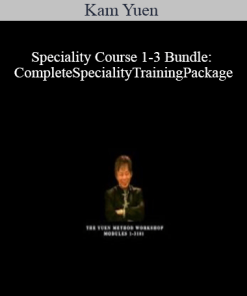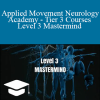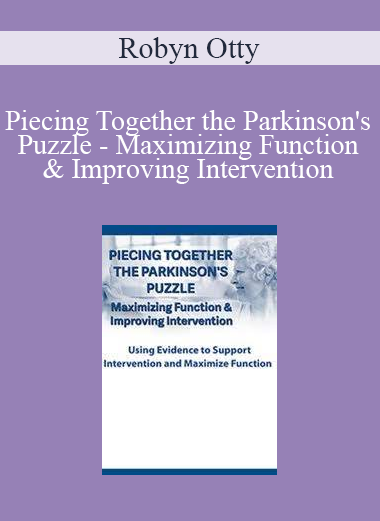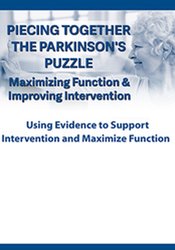-
×
 Fearless Man – The Brotherhood
1 × $32
Fearless Man – The Brotherhood
1 × $32 -
×
 David Ball & Artemis Malekpour - A Preview of Damages: The Evolution, Part 1
1 × $25
David Ball & Artemis Malekpour - A Preview of Damages: The Evolution, Part 1
1 × $25 -
×
 Tina Payne Bryson, Daniel J. Siegel - No Drama Discipline
1 × $19
Tina Payne Bryson, Daniel J. Siegel - No Drama Discipline
1 × $19 -
×
 Trial Guides - Fail Better: Continuing Efforts to Eliminate Bias in the Law
1 × $25
Trial Guides - Fail Better: Continuing Efforts to Eliminate Bias in the Law
1 × $25 -
×
 Kam Yuen - Speciality Course 1-3 Bundle: Complete Speciality Training Package
1 × $92
Kam Yuen - Speciality Course 1-3 Bundle: Complete Speciality Training Package
1 × $92 -
×
 Jennifer Sweeton - 2-Day Mastery Course on Neuroscience Informed Therapy: Connect Complicated Brain Research with Accessible Therapeutic Strategies for Anxiety, Depression, Chronic Pain, Substance Abuse & Trauma
1 × $87
Jennifer Sweeton - 2-Day Mastery Course on Neuroscience Informed Therapy: Connect Complicated Brain Research with Accessible Therapeutic Strategies for Anxiety, Depression, Chronic Pain, Substance Abuse & Trauma
1 × $87 -
×
 Dietrich Klighardt vs Daniela Deiosso - A.R.T. 2 Intermediate Manual
1 × $17
Dietrich Klighardt vs Daniela Deiosso - A.R.T. 2 Intermediate Manual
1 × $17
Robyn Otty – Piecing Together the Parkinson’s Puzzle – Maximizing Function & Improving Intervention
$180 Original price was: $180.$39Current price is: $39.
Delivery Method: Digital download is available after purchase, and you can access your courses anytime, anywhere, using a computer, tablet, or smartphone.
Robyn Otty – Piecing Together the Parkinson’s Puzzle – Maximizing Function & Improving Intervention
Treating the unpredictable neurological progression that is Parkinson’s disease (PD) can seem random, complex, and overall difficult to manage. PD presents a host of challenges, such as changes in motor control and posture, onset of tremors, inability to initiate purposeful movement, and the mimicking of the disease from prescription drugs. Therapists have addressed such complications with traditional techniques such as movement-based approaches and compensatory strategies. However, there’s been an influx of evidence related to PD interventions showing effective methods and tools used by rehab professionals.
Let seasoned OTD, Robyn Otty, show you how cognitive rehabilitation, movement-based and non-traditional interventions fit together to influence a client’s posture, dynamic balance, initial movement, and ADLs. Review the most up-to-date literature and medical management to form successful outcomes with this population that can be used the very next day.
- Forecast the progression of Parkinson’s Disease (PD).
- Select the latest medical management techniques to manage PD symptomology.
- Evaluate evidence-based therapeutic methods to positively influence patients with PD.
- Utilize interactive therapeutic activities, strategies and equipment to support patients with PD.
- Modify documentation skills by reviewing best practices to minimize insurance denials.
- Assess the patient for quality of movement, posture and falls.
PARKINSON’S DISEASE OVERVIEW
- Latest research
- Etiology (genetics and environmental influences)
- Medical management
- Postural influence and associated fall risk
- Motor complications
EVIDENCE-SUPPORTED ASSESSMENT TOOLS & EFFECTIVE DOCUMENTATION
- Assessment tools for:
- Quality of movement
- Posture
- Falls
- Mini-rotation
- Best-practice documentation strategies for skilled intervention
THERAPEUTIC APPROACHES: TRADITIONAL AND NON-TRADITIONAL
- Improving dynamic balance, posture, ADLs, and initiation of movement
- Movement-based interventions
- Evidence-supported movement-based programs
- Cognitive approach to improve dynamic balance and ADLs
- External cuing
- Non-traditional interventions
- Tai Chi
- Yoga
- Video games
- Dance
- Visualization
COMMUNITY OPTIONS
- Options to support clients and caregivers impacted by PD
HANDS-ON LAB
- Interactive Class Rotation: Session I
- Tai Chi/Yoga
- Adaptive equipment
- Cognitive rehabilitation techniques
- Tools for assessment
- Interactive Class Rotation: Session II
- Task-based approach
- Movement-based approaches
- Documentation station (case application)

Robyn Otty, OTD, OTR/L, BCPR, FAOTARelated seminars and products
Robyn Otty, OTD, OTR/L, BCPR, FAOTA, is the program director and professor at Touro University Nevada’s School of Occupational Therapy. She is a seasoned practitioner as an occupational therapist for 27 years, with over half her career in pediatrics. Robyn graduated from San Jose State University in 1994 and received her post-professional doctorate from Loma Linda University in 2020. She actively investigates cognitive approaches to occupational skill development and how students can take a more proactive approach to course design. Robyn actively presents on a variety of topics pertaining to pediatrics including handwriting, neuroplasticity, and behavior management.
Speaker Disclosures:
Financial: Dr. Robyn Otty has an employment relationship with Touro University Nevada. She is an event coordinator and technician for Car-Fit. She receives speaking honoraria from PESI, Inc. and Summit Education. Dr. Otty receives recording royalties from PESI, Inc. She has no relevant financial relationships with ineligible organizations.
Non-financial: Dr. Robyn Otty is a volunteer for Nevada Senior Services. She is a member of the Nevada Occupational Therapy Association, the American Occupational Therapy Association, and the Institute for Healthcare Improvement.
Be the first to review “Robyn Otty – Piecing Together the Parkinson’s Puzzle – Maximizing Function & Improving Intervention” Cancel reply
Related products
Sale!
Medical & Health
Rated 4.76 out of 5
Medical & Health
Rated 3.86 out of 5
$20
Sale!
Sports & Fitness
Sale!
Medical & Health
Rated 5 out of 5
Sale!
Medical & Health
LearningHerbs – Five Phases: The Nature of Your Health Audio Course
Sale!
Rated 3.16 out of 5
Sale!
Medical & Health
Iquim – Dr Amit Goswami – Dec. 2015 New Context for Medicine
Rated 5 out of 5
Sale!
Medical & Health
Rated 5 out of 5













8 reviews for Robyn Otty – Piecing Together the Parkinson’s Puzzle – Maximizing Function & Improving Intervention
There are no reviews yet.